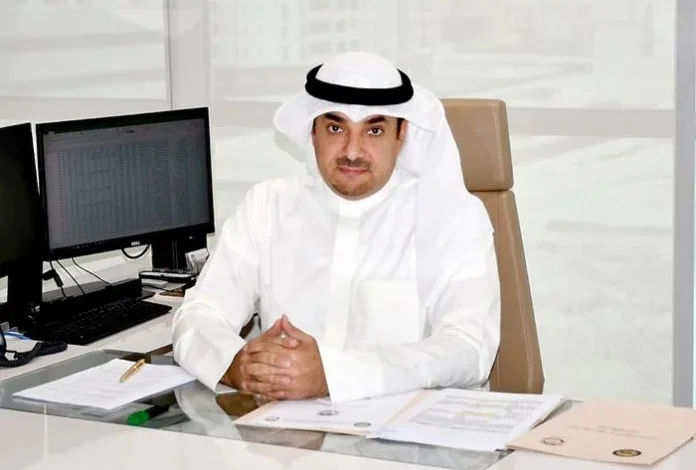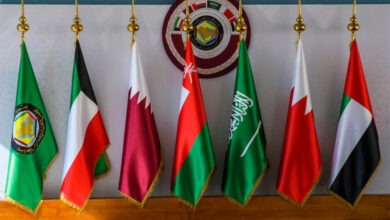GCC-CAC enhances investments, judicial spheres in Gulf

Tareq Al-Shumaimry
Secretary-General of GCC-CAC
Since its establishment in 1995, the Gulf Cooperation Council (GCC) Commercial Arbitration Centre (GCC-CAC), has been at the forefront in enhancing the role of arbitration as a self-dependent system in resolving trade and business disputes among GCC nationals, or between them and other nationals, including natural and corporate persons.
As the CAC system draws its regulation from a multi-party sovereign source that rises above laws in force in the GCC States, the Center is able to provide an integrated and impartial judicial and arbitration system, said the newly elected Secretary-General of GCC-CAC, Tareq Al-Shumaimry, while affirming that the provisions and rulings of the Center are valid in all the countries of the GCC.
Speaking during a recent media-interview in Kuwait, Al-Shumaimry added that the impartial rulings administered by the Center have helped to spread the arbitration culture among all stakeholders, and to build confidence among international investors to invest in the region. He further noted that the CAC, which has its headquarters in the Kingdom of Bahrain, is also actively engaged in training and qualifying a new generation of arbitrators from the region through its high-quality training programs.
Confirming the Center’s physical presence in Kuwait through a number of bilateral memorandum of cooperation between the State and CAC, the Secretary-General added that currently several disputes involving Kuwaiti companies or subsidiaries of Kuwaiti companies were before the CAC. He underscored the fact that the confidential nature of the arbitration process, which distinguishes it from alternative means of settling disputes, has kept these disputes out of public limelight and media coverage of the commercial sector.
He stressed that the center enjoys a unique legal and legislative ground, which enables it to provide an advanced international arbitration experience, in resolving disputes in the best way so that it contributes to supporting the commercial sector and attracting foreign investments, by providing a successful and easy way to settle potential commercial disputes, according to recognized international frameworks.
During his interview, Al-Shumaimry spoke at length and provided a detailed explanation on various aspects of CAC and its workings. Below are excerpts from the media interaction with the new CAC Secretary-General.
He began by explaining the advantages of arbitration before the Center as compared to other judicial procedures. “Arbitration before the CAC, compared to the judiciary, is characterized by many advantages, including the confidentiality of deliberations between the parties to the dispute and the arbitral tribunal, the parties’ control over the procedures, as well as the parties’ freedom to choose the persons who will decide the dispute, the applicable law, and the venue of the sessions, as well as speed in settling disputes — the maximum time specified in issuing a judgement by the Center is 100 days, nevertheless, the CAC has been able to reach amicable settlements and issue a number of judgements in less than 50 days.
Explaining why the Center’s rulings are enforceable in GCC courts, Al-Shumaimry said, “The Center’s Arbitration Procedures Regulations, which were approved in all GCC countries, according to the constitutional instrument of each state, makes judgments issued by the Center binding and final. It shall have the force of enforcement in the member states of the Cooperation Council, after ordering its implementation by the competent judicial authority.
Since the rules of the Center are derived from an origin that transcends the national laws of the GCC countries, and its rules stem from a regional agreement between the countries of the GCC, the provisions and rulings of the center are effective in all the countries of the GCC.”
Elaborating on the relevance of a regional judicial system such as the CAC, Al-Shumaimry emphasized, “There is no doubt that this approach will contribute to strengthening the investment and judicial system in the Gulf and will contribute to spreading the culture of arbitration widely. The settlement of disputes and disputes in commercial and financial transactions through institutional arbitration provides an advanced and successful mechanism compared to individual arbitration processes, as the frameworks provided by institutional arbitration represent and give many guarantees, compared to alternative methods in settling and resolving commercial disputes.
We need to stress here the importance of legalization in issuing permits to opening commercial arbitration centers, so that stringent quality conditions are met by these centers in accordance with international standards.”
On plans by the Center for its interactions in Kuwait, the new Secretary-General who is a Kuwaiti citizen said, “The CAC has signed a number of bilateral MoUs with various government and private entities in Kuwait, including with the Ministry of Justice, the Fatwa and Legislation Department of the Kuwaiti Cabinet, the Kuwait Bar Association, the Kuwait Accountants Association, and the Kuwait Center for Commercial Arbitration. In addition, the Center has mutual accreditation with the Kuwait Center for Commercial Arbitration, which is affiliated with the Kuwait Chamber of Commerce and Industry, so that graduates of the two centers’ training programs can be registered in the list of arbitrators in the two centers.
“In addition, Law 7/2013 was issued in Kuwait approving an agreement between the Kuwaiti government and the center, regarding opening a representative office for the center in Kuwait. This is part of our future plan to expand the Center’s activity in all GCC countries, not just in Kuwait.”
Revealing the Center’s views on commercial arbitration in the region in the coming years, Al-Shumaimry elaborated, “By its nature, the Center is a non-profit system, which aims to provide its services to the commercial and investment sector, with the aim of promoting and attracting foreign investments. The Center thus works to enhance its activity in settling commercial disputes, introducing and spreading the culture of arbitration.
“Therefore, we will seek during the coming period to attract international experiences in cooperation with local expertise and competencies in the GCC countries to reach the best modern and contemporary practices in the field of arbitration. The center enjoys a legal and legislative ground that helps provide an advanced international arbitration experience, that helps in resolving disputes in the best way, which contributes to supporting the commercial sector and attracting foreign investments by providing a successful and easy way to settle potential commercial disputes in accordance with recognized international frameworks.”
Explaining the importance of spreading the culture of arbitration, and about the awareness in society about the process of arbitration in settling disputes, the Secretary-General noted, “Spreading the culture of arbitration is one of the challenges that the Center has taken upon itself to pursue, following the discovery of several shortcomings in arbitration culture in the Gulf commercial circles. The lack of this culture will lead to Gulf investors being slow to include the arbitration clause, or they may find themselves compelled to sign foreign investments that place a condition on arbitration by foreign centers, which impose conditions that are not commensurate with the reality of Gulf investment, or are in the interest of the foreign investor at the expense of the Gulf investor.
“Therefore, since its inception, the Center has continued to qualify and prepare arbitrators at an international level from the citizens of the GCC states, who are specialized in settling commercial disputes, and are familiar with the international commercial arbitration system, and the foreign laws applicable to the subject of litigation.
There is an urgent need to raise the level of arbitral opportunities for arbitrators and lawyers in our region, to advance the reality of arbitration by including the arbitration clause in contracts. At the same time it is also important to upgrade human cadres in GCC through training, so that these cadres reach the ranks of international arbitration levels.
Speaking about the establishment of the GCC-CAC, and the dependency of it on the approval granted to it by the leaders of GCC Supreme Council, and its consequent impact on impartiality of the Center’s rulings, Al-Shumaimry explained, “This dependency ensures greater independence, as the Center is a judicial body that decides on commercial disputes, one of whose parties may be an official body represented by a ministry, an agency or an agency of one of the six countries, and thus this dependency was with diplomatic immunities and privileges approved by the Center’s system in each of the Articles (24, 25, 26, 27) of the Center’s Law, which provide an incentive to push the arbitral tribunals to issue fair and just rulings, away from subordination to any official or semi-official body.”
Elaborating on the services provided by the Center to the commercial sector in the GCC countries, he said, “The Center manages the settlement of disputes handled by the arbitral tribunals in accordance with the arbitration rules in force in the Center through the secretariat of the arbitral tribunal, which works under the supervision of the Secretary-General and follows him administratively.
The center also provides all facilities and assistance for holding arbitration sessions, whether institutionalized through the arbitration clause of the Center or the parties’ request to hold free arbitration sessions under the supervision of the Center. The facilities and assistance include: providing halls, carrying out secretarial work, translation, keeping documents and arbitration papers.
The Center also organizes conferences, seminars and training programs for the qualification and preparation of arbitrators and specialized experts, each in his field to join the list of arbitrators and experts at the Center. In addition, the Center has concluded contracts, agreements and memoranda of understanding with a number of prominent institutions in the field of arbitration, or related to arbitration work, at the national, regional and international levels with the aim of cooperation and exchange of experiences.”
Giving an overview of recent arbitration cases before the CAC, he added, “The total value of the disputes received by CAC from the start of this year to 31 July amounted to about US$69.6 million, of which Saudi parties accounted for about 50 percent. In addition, around 50 percent of the cases considered by the Center since its inception in 1995 have been for Saudi parties. This is only normal and expected considering the size of the large Saudi market and the huge investments it has inside and outside the GCC countries.”
Expanding on the recent trend to transition towards electronic arbitration, and his views on whether the digital transformation affects conflict resolution, the Secretary-General explained, “The COVID-19 crisis introduced and imposed the shift to digital arbitration in many arbitration centers, which called for a review of laws and legislation in the GCC countries to keep pace with developments in this field. We will see in the coming days how effective it is compared to the traditional arbitration process, before deciding on promoting or discouraging this system.”

















